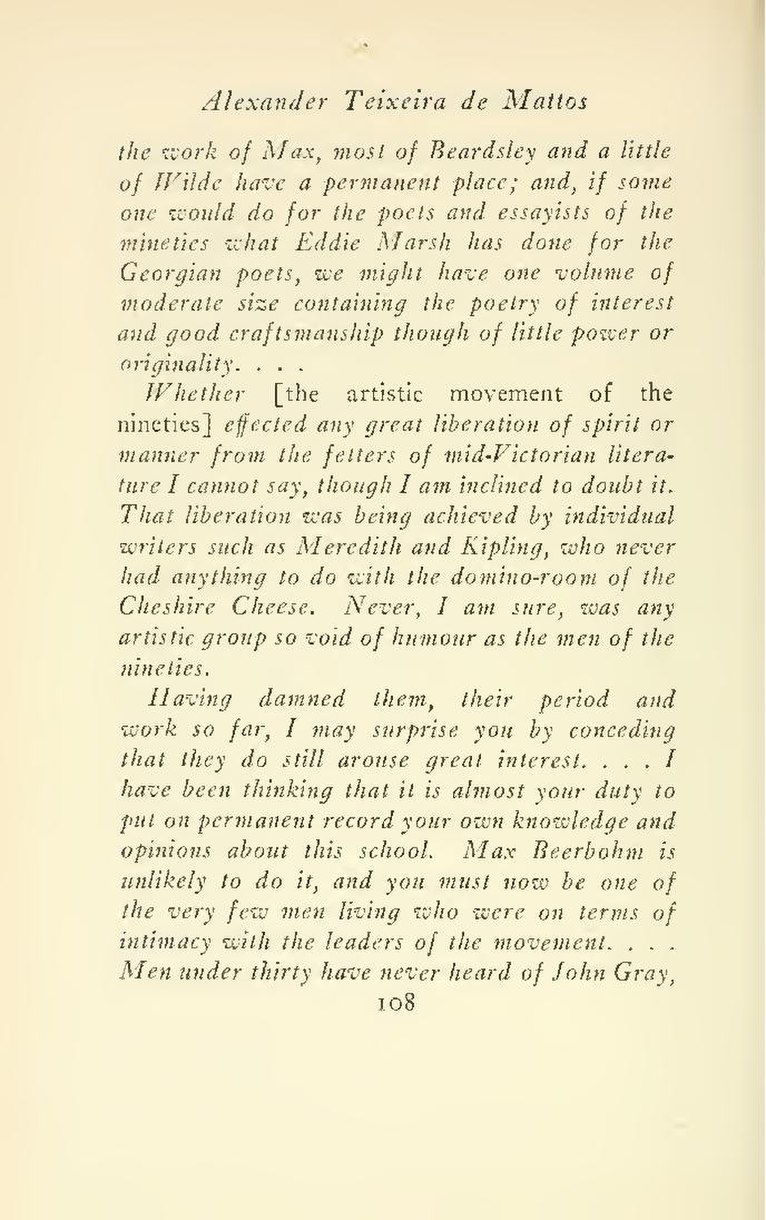the work of Max, most of Beardsley and a little of Wilde have a permanent place; and, if some one would do for the poets and essayists of the mineties what Eddie Marsh has done for the Georgian poets, we might have one volume of moderate size containing the poetry of interest and good craftsmanship though of little power or originality. . . .
Whether [the artistic movement of the nineties] effected any great liberation of spirit or manner from the fetters of mid-Victorian literature I cannot say, though I am inclined to doubt it. That liberation was being achieved by individual writers such as Meredith and Kipling, who never had anything to do with the domino-room of the Cheshire Cheese. Never, I am sure, was any artistic group so void of humour as the men of the nineties.
Having damned them, their period and work so far, I may surprise you by conceding that they do still arouse great interest. . . . I have been thinking that it is almost your duty to put on permanent record your own knowledge and opinions about this school. Max Beerbohm is unlikely to do it, and you must now be one of the very few men living who were on terms of intimacy with the leaders of the movement. . . . Men under thirty have never heard of John Gray,
